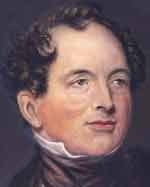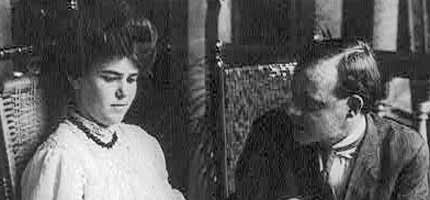Believe Me If All Those Endearing Young Charms is a song about the power of enduring love – the kind that is not influenced by transitory beauty.
It was written in by the Irish poet Thomas Moore, who also wrote several other classic songs such as The Minstrel Boy and The Last Rose of Summer.
Moore is said to have written the song for his wife.
For his wife – who feared she had lost her looks

When Moore returned, she was reluctant to let him see her in her changed state for fear he would no longer love her.
Moore responded by going to his study and sitting down to write. A few hours later, he knocked on his wife’s door and read the poem he had just written – Believe Me If All Those Endearing Young Charms.
Thou wouldst still be adored
Encouraged by his words that he loved her regardless of her looks, she allowed him back into her room.
They remained together for the rest of their lives.
There is no reliable written evidence that things happened exactly this way but it’s a story that has been widely accepted by fans who are devoted to the song and the emotions it expresses.
It is not while beauty and truth are thine own

Her looks are temporary; his love is permanent. The language of the song tries to diminish the value of beauty, describing good looks as mere “fairy gifts”.
He says that true love cannot be measured when a woman still has all her beauty; it can only truly be measured once that beauty has faded.
The heart that has truly loved never forgets
The singer asserts that the “heart that has truly loved never forgets”. Instead, it endures until the end, regardless of how transitory qualities like beauty might fade.
The song ends by comparing the actions of the genuine lover to those of the sunflower, which not only turns its face to the sun in the morning when it is full of dazzling beauty, it also turns to the sun at dusk when that beauty and splendour has faded.
Moore’s poem was set to an old Irish melody
Moore originally wrote Believe Me… as a poem. It was later set to an old Irish melody by the Irish musician and composer, Sir John Stevenson and published in Moore’s Irish Melodies.
The same tune was used in another song called My Lodging it is in the Cold Ground by Matthew Locke, which was first published in 1737.
The melody also used in Fair Harvard, the official song of Harvard University.
The first few bars of the melody are played on violin at the start of a song called Come on Eileen which was a number one hit in the UK for the British band, Dexys Midnight Runners.
Believe Me If All Those Endearing Young Charms
Videos
Lyrics and chords